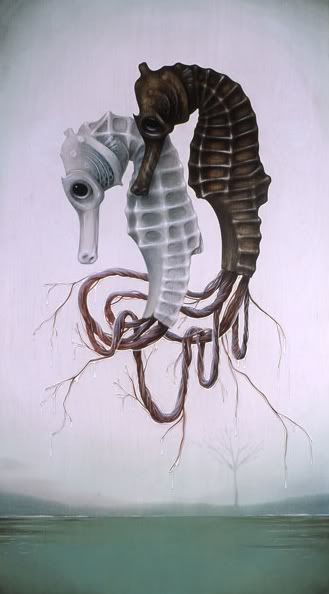I had made my first traverse through the Matthaei Botanical gardens. I picked up some chamomile on the way and rubbed it in my palms until it was just dust, tiny specks that fell away on the ground as I walked, but as they left, they generously left their scent for memory’s sake. A kaleidoscope was situated in an open area, pointed at a handsome pot of purple velvet plants, whose name now escapes me. The apparatus had been set up to spin (to accommodate to our visual necessity for constant stimuli change – if our eyes don’t move, the nerves get exhausted – bored of sending their chemical signals and it disappears from our mental projections.) Not one moment had been preceded by the last – every second a fresh burst of novelty, of colors and geometry sliding in for a brief second to visit, and then conceding to the next image waiting in the wings.
I ended up leaving to go sit by a bank of a small river, wrote as I listened to the trickling of water around fallen branches that were still connected to their trunks connected to the ground. They were leaning into the water, fallen almost too dramatically, too tragically into the swirling cold. But the ebb of water desires to follow its own path (traveling south, that is, behind me relative to how I was situated); they collided into the fallen natural debris and then, realizing they had been struck, rushed around corners and rocks. Their rippling was initially almost undetectable, but as more time passed, the louder, the more excited the sound grew – I could almost see it quivering. The sound grew as organic and natural as a spear of grass piercing out of the earth.
Spring is here, and I urge you all to take a walk through some brambles, breathe in some clean air, and feel the reanimation of a million lives from slumber.
Sue majors in Neuroscience & English and tends to lurk in bookstores.





